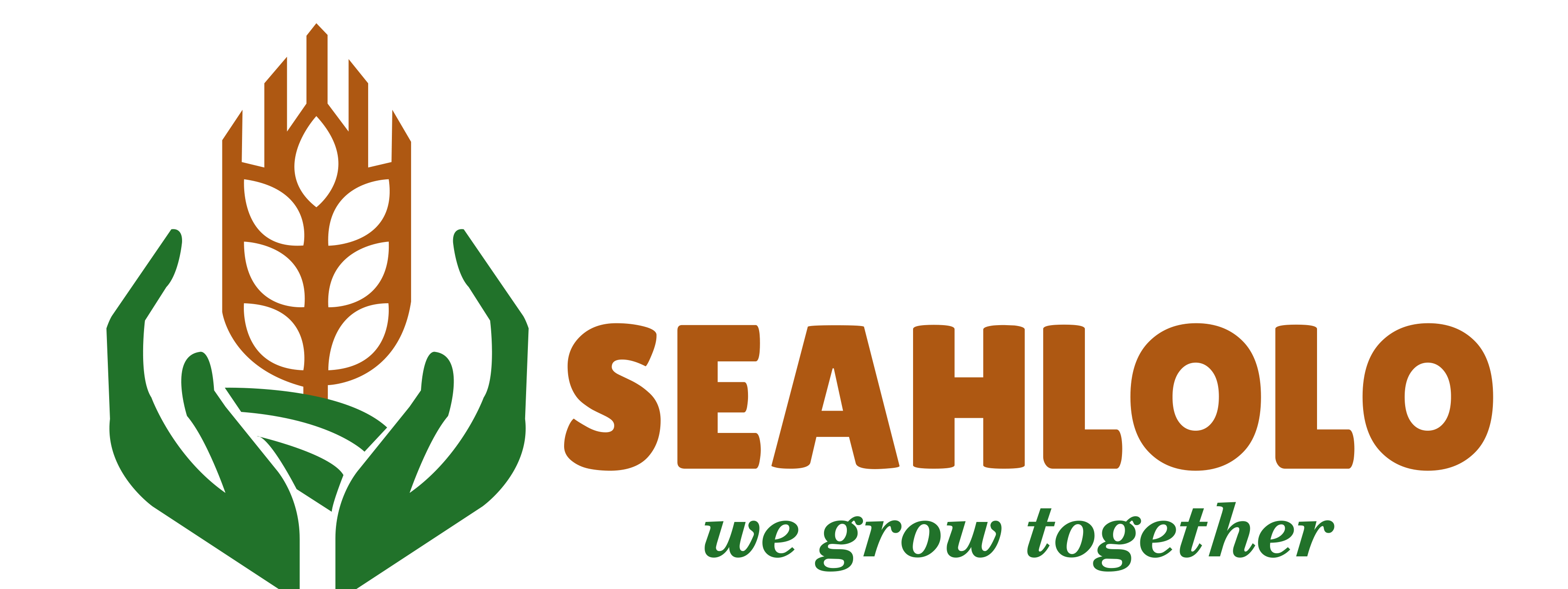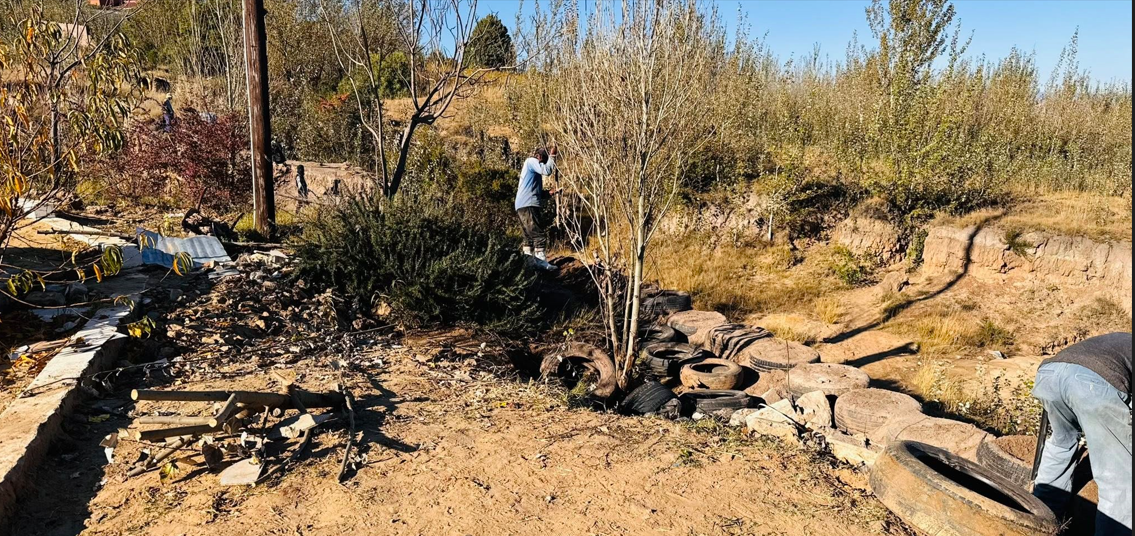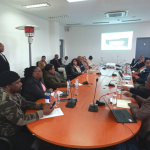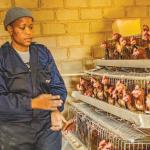What began as a birthday gathering in November 2019, on the degraded hills of Boqate, sparked a movement that is now transforming Lesotho’s most eroded landscapes.
From that dusty day emerged the Re Kata Mangope Foundation, a home-grown effort to reclaim land scarred by deep gullies, known locally as mangope.
In Lesotho, mangope—or dongas—are more than just environmental scars. They are symbols of lost productivity, unsafe terrain, and communities at risk.
These deep, hazardous gullies, carved by decades of water runoff and poor land management, render vast tracts of land unusable. But one foundation is proving that these wounds can be healed.
“We felt the land and Lesotho deserve better. We wanted to turn scars into gardens, erosion into ecosystems of hope and poverty into opportunity,” Advocate Makhetha Motšoari, founder of Re Kata Mangope, explains.
At Boqate Hills Resort & Leisure, where gullies once dominated the terrain, the foundation piloted simple, sustainable methods that have now caught national attention.
The approach begins with used tires, placed at the heads of erosion channels to slow down water flow.
The gullies are then filled with compacted soil. Over time, layers of compost, organic brush and recycled farm waste are added to regenerate fertility.
“The results have been remarkable. What was once barren and dangerous land is now terraced, green and teeming with flowers, vegetables, fruit trees and grass,” Motšoari says.
This transformation is not only visual, it is deeply social. Re Kata Mangope’s approach empowers communities to reclaim control over their environment, one shovel at a time.
The foundation’s impact stretches beyond land restoration. Its mission is rooted in community development and youth empowerment.
“We are restoring native grasses and trees, reducing flash flood risk, and building soil health. We are also training young people as guides, gardeners, and conservationists, giving them new paths forward,” Motšoari explains.
At Boqate, gullies have not just disappeared, they have been integrated into functional, beautiful landscapes. Events now take place where erosion once ruled. Guests walk through lush gardens, often unaware of the devastation that existed before.
“Seeing the before-and-after photos is the only way people believe it’s a total transformation,” says Motšoari.
Re Kata Mangope’s model is deeply participatory.
Communities help identify erosion hotspots through consultations and visual surveys. These areas are then assessed for severity, and a plan is drawn. Motšoari explains the process, noting local villagers and youth volunteers carry out the work in a cash-for-work model, similar to successful national employment schemes.
“Resources are kept local: recycled tires, compost from agricultural waste, brush from the land. Training is conducted through workshops,” he says.
He shares that the foundation currently runs on personal reinvestment, small grants, and income from eco-tourism activities hosted at Boqate.
Despite not being formally registered, Re Kata Mangope has earned the trust of communities and local authorities across districts. Requests for support and training now pour in daily.
Motšoari is clear about the foundation’s vision: to become a national leader in land restoration and policy innovation. He is calling on the Ministry of Environment, Forestry and Land Reclamation, and tourism authorities, to formally recognise Re Kata Mangope’s work.
“We want to deploy teams to conduct national donga surveys, develop training for public extension workers, and contribute to conservation corridors. Our work aligns with national catchment management goals; it is only profitable for the country to adopt it, it works,” he says.
The foundation measures its success through quantifiable results: the number of contours built, soil infiltration rates, vegetation regrowth, and sustained community involvement.
Challenges remain. The foundation needs formal registration, scalable funding, and stronger support to overcome labour intensity and climate unpredictability. Still, the vision is bold and ambitious.
By 2030, Re Kata Mangope aims to launch national “Operation Re Kata Mangope” campaigns in every district, establish a formal training academy for donga rehabilitation, develop income streams through eco-tourism and consultancy and partner with government and donors for wide-scale impact.
“Our dream is for every village to transform mangope into gardens. We want Lesotho to be known not for erosion, but for regeneration,” says Motšoari.




